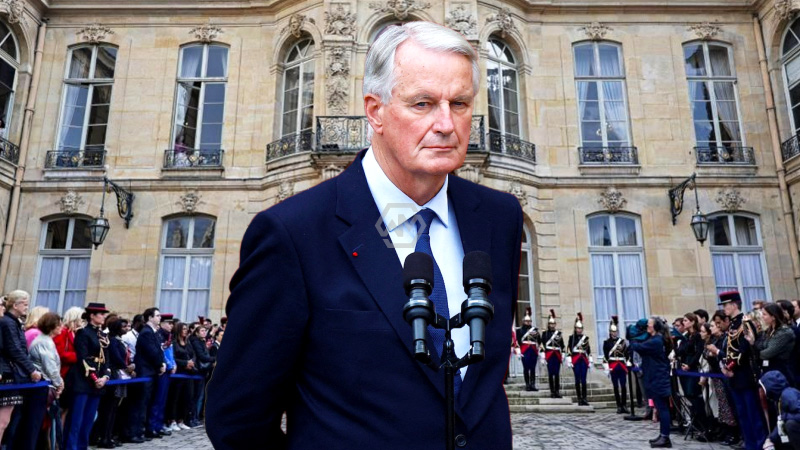- Michel Barnier, 73, becomes France’s new Prime Minister, tasked with forming a cabinet amidst a divided parliament.
- President Macron’s centrist alliance lost its relative majority, leading to a new political landscape dominated by the far-right National Rally (RN).
- Barnier’s priorities include education, security, and immigration control, but left-wing opposition may hinder his progress.
Michel Barnier, France’s new right-wing Prime Minister, steps into office with the immediate challenge of forming a cabinet capable of governing a deeply divided parliament.
Following two months of political gridlock, his appointment marks a shift from the centrist leadership of his predecessor, Gabriel Attal.
Michel Barnier’s Premiership: Navigating a Divided French Parliament
Despite Barnier’s emphasis on priorities like education, security, and immigration control, his nomination has been met with criticism from the left. The opposition accuses President Macron of aligning himself with the far-right, turning Le Pen into a political kingmaker. The left-wing parties are preparing to resist Barnier’s government, with some vowing to table a motion of no confidence. As Barnier assembles his cabinet, the looming struggle over his policies will define his early days as Prime Minister.
Marine Le Pen’s RN holds significant influence, having become the largest single party in the lower chamber. Although Le Pen has distanced herself from participating in the new government, her party’s presence in parliament will inevitably affect Barnier’s ability to govern effectively. His success may depend on securing support from other political factions or forging strategic alliances to push through key legislation.
The left-wing parties, particularly the France Unbowed party, have reacted strongly to Barnier’s appointment. They accuse President Macron of cozying up to the far right by nominating a right-wing Prime Minister. Many left-leaning politicians are preparing to challenge Barnier’s government with a no-confidence motion. Lucie Castets, a leading left-wing figure, voiced frustration, expressing the sentiment of betrayal felt by many voters who oppose the National Rally’s influence.
As Barnier works to form his cabinet, he has promised to prioritize issues like education, security, and immigration control. His ability to build a strong and effective government will be critical in managing France’s pressing issues. Whether he can deliver on these promises in the face of intense political opposition remains to be seen.
Michel Barnier’s premiership will be defined by his ability to form a government that can navigate France’s polarized political environment. His next moves will be critical in determining whether he can effectively govern in this challenging landscape.
“I am very angry, like millions of French voters who I think feel betrayed,” said Lucie Castets, a prominent left-wing economist, criticizing the nomination



